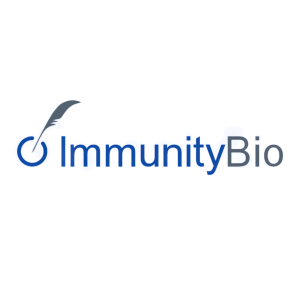N-803 Combined with Natural Killer Cells Showed Potential to Reduce HIV Viral Load in HIV Positive Subjects; Part of HIV Cure Study
- All participants in the Phase 1 pilot study experienced a marked decrease in the burden of infection, and the procedures were found to be safe and well tolerated
- N-803 is being studied in three other HIV cure-related clinical trials
Published in The Journal of Infectious Diseases, researchers at the University of Minnesota Medical School gave six HIV-positive individuals infusions of healthy NK cells from close relatives, along with N-803 to boost NK cell activity. All participants in this Phase 1 study experienced significant reduction in infection levels following treatment with N-803. The approach was well tolerated with no unexpected adverse events.
Tim Schacker, MD, senior author of this paper, and colleagues at the University of Minnesota Medical School are planning a follow-on study in additional participants to further investigate these immunotherapies in HIV infected individuals.
HIV affects tens of millions globally and currently has no known cure. HIV can disable NK cells—a frontline defense against viral infections—making it difficult to clear the infection. One current strategy for curing HIV is known as the "kick and kill" approach. N-803 is under evaluation using this strategy, given the molecule’s ability to activate viral transcription in CD4+ T cells ("kick") and boost CD8+ and NK cells, crucial for identifying and eliminating infected cells ("kill"), directing them to viral reservoirs.
"Antiretroviral therapies have had a profound impact on society, making it possible for those living with HIV to live longer lives with better outcomes. However, these therapies are not a cure, and still place a significant burden on people living with the HIV virus and the healthcare system,” said Patrick Soon-Shiong, M.D., Chairman and Global Chief Scientific and Medical Officer at ImmunityBio. “These data preliminarily appear to validate what we know about the benefit of enhancing NK cell function and the potential utility of N-803 in infectious diseases.”
In addition to this study, three other clinical trials are underway involving N-803 in HIV Cure-related strategies. Two Phase 1 clinical trials are investigating N-803 in combination with bNAbs in HIV-infected individuals (ACTG A5386, NCT04340596: and NCT05245292 at the Rockefeller University) and a Phase 2 study is also underway to investigate the effect of combining N-803 with ART during acute HIV infection, sponsored by the Thai Red Cross and the
ImmunityBio’s IL-15 superagonist N-803 (also called Anktiva® and nogapendekin alfa inbakicept)
The cytokine interleukin-15 (IL-15) plays a crucial role in the immune system by affecting the development, maintenance, and function of the natural killer (NK) and T cells. N-803 is a novel investigational IL-15 superagonist complex consisting of an IL-15 mutant (IL-15N72D) bound to an IL-15 receptor α/IgG1 Fc fusion protein. Its proposed mechanism of action is direct specific stimulation of CD8+ T cells and NK cells through beta gamma T-cell receptor binding with generation of memory T-cells while avoiding T-reg stimulation. N-803 is designed to have improved pharmacokinetic properties, longer persistence in lymphoid tissues and enhanced anti-tumor activity compared to native, non-complexed IL-15 in vivo.
N-803 is currently being evaluated in adult patients in two clinical NMIBC trials. QUILT-2.005 is investigating use of N-803 in combination with BCG for patients with BCG-naïve NMIBC; QUILT-3.032 is studying N-803 in combination with BCG in patients with BCG-unresponsive NMIBC CIS and Papillary Disease.
N-803 is investigational. Safety and efficacy have not been established by any Health Authority or Agency, including the FDA.
About ImmunityBio
ImmunityBio is a vertically-integrated, clinical-stage biotechnology company developing next-generation therapies and vaccines that bolster the natural immune system to defeat cancers and infectious diseases. The company’s range of immunotherapy and cell therapy platforms, alone and together, act to drive and sustain an immune response with the goal of creating durable and safe protection against disease. We are applying our science and platforms to treating cancers, including the development of potential cancer vaccines, as well as developing immunotherapies and cell therapies that we believe sharply reduce or eliminate the need for standard high-dose chemotherapy. These platforms and their associated product candidates are designed to be more effective, accessible, and easily administered than current standards of care in oncology and infectious diseases.
For more information, please visit: www.immunitybio.com
Forward Looking Statements
This press release contains forward-looking statements within the meaning of the Private Securities Litigation Reform Act of 1995, such as statements regarding clinical trial data, results and plans, phases and patient enrollment, information regarding potential patient population, potential benefit to patients, potential additional studies and trials, methods, regulatory pathways, and ImmunityBio’s investigational agents as compared to existing treatment options, among others. Statements in this press release that are not statements of historical fact are considered forward-looking statements, which are usually identified by the use of words such as “anticipates,” “believes,” “continues,” “goal,” “could,” “estimates,” “scheduled,” “expects,” “intends,” “may,” “plans,” “potential,” “predicts,” “indicate,” “projects,” “seeks,” “should,” “will,” “strategy,” and variations of such words or similar expressions. Statements of past performance, efforts, or results of our preclinical and clinical trials, about which inferences or assumptions may be made, can also be forward-looking statements and are not indicative of future performance or results. Forward-looking statements are neither forecasts, promises nor guarantees, and are based on the current beliefs of ImmunityBio’s management as well as assumptions made by and information currently available to ImmunityBio. Such information may be limited or incomplete, and ImmunityBio’s statements should not be read to indicate that it has conducted a thorough inquiry into, or review of, all potentially available relevant information. Such statements reflect the current views of ImmunityBio with respect to future events and are subject to known and unknown risks, including business, regulatory, economic and competitive risks, uncertainties, contingencies and assumptions about ImmunityBio, including, without limitation, (i) the risks and uncertainties associated with the regulatory review process including without limitation the Company’s BLA resubmission following receipt of the complete response letter (CRL) from the FDA and the ability of ImmunityBio and its third party contract manufacturing organizations to adequately address the issues raised in the CRL, (ii) whether or not the clinical trial referenced in this release will continue to progress as anticipated, including without limitation the follow-on study referenced, (iii) the ability of ImmunityBio to continue its planned preclinical and clinical development of its development programs through itself and/or its investigators, and the timing and success of any such continued preclinical and clinical development and planned regulatory submissions, (iv) ImmunityBio’s ability to retain and hire key personnel, (v) ImmunityBio’s ability to obtain additional financing to fund its operations and complete the development and commercialization of its various product candidates, (vi) ImmunityBio’s ability to successfully commercialize its product candidates and uncertainties around regulatory reviews and approvals, (vii) ImmunityBio’s ability to scale its manufacturing and commercial supply operations for its product candidates and future approved products, and (viii) ImmunityBio’s ability to obtain, maintain, protect and enforce patent protection and other proprietary rights for its product candidates and technologies. More details about these and other risks that may impact ImmunityBio’s business are described under the heading “Risk Factors” in the Company’s Form 10-K filed with the
View source version on businesswire.com: https://www.businesswire.com/news/home/20240305877538/en/
Investors
Hemanth Ramaprakash, PhD, MBA
ImmunityBio, Inc.
+1 858-746-9289
Hemanth.Ramaprakash@ImmunityBio.com
Media
Greg Tenor
Salutem
+1 717-919-6794
Gregory.Tenor@Salutemcomms.com
Source: ImmunityBio







